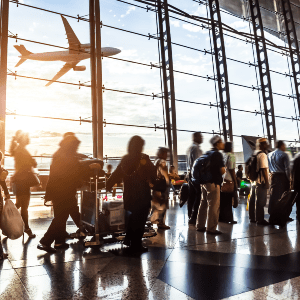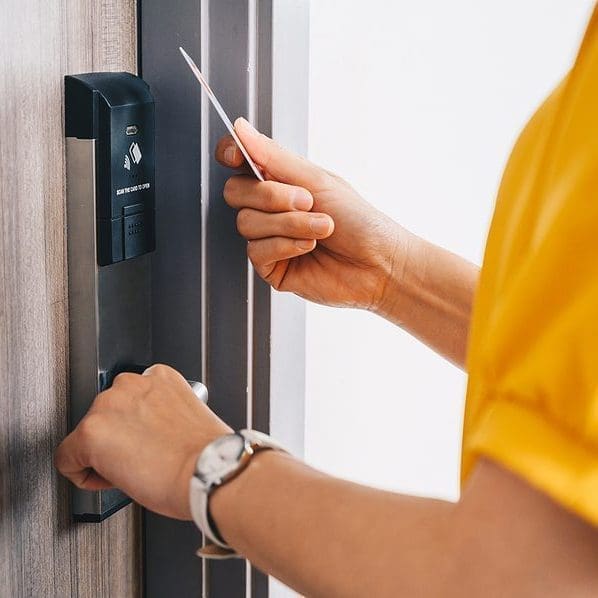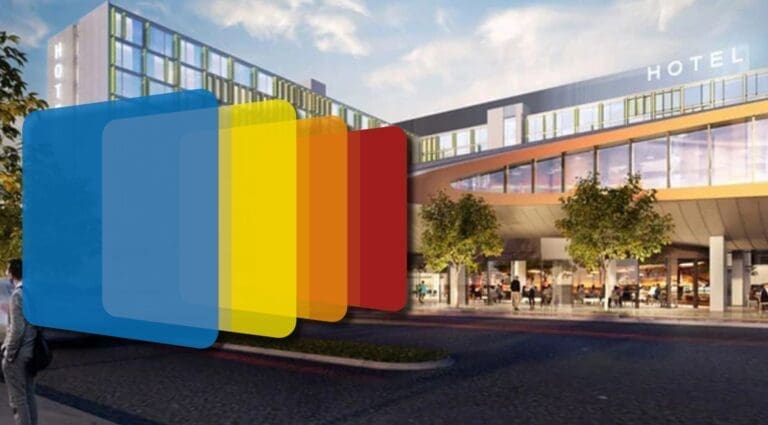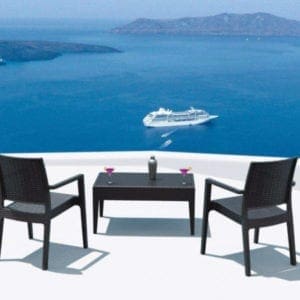It is 3 am in the morning and the fire alarm in the hotel goes off. How will your guests with disability react? Will the hotel response procedures cater to the special needs of guests with a disability to help them safely exit the hotel?
As some of you may have experienced, usually it takes a moment or two to get your mind together when a fire alarm sounds at this time of the night. In most cases, guests first put on the lights, then look outside the window, then open the hotel bedroom door to see if there is smoke and the direction it is coming from. If the alarm continues to sound, they go back into their room, get dressed and grab a few personal belongings before leaving the building through the nearest fire exit.
Imagine now the same scenario, if you were a guest in a wheelchair. Everything is going to be more difficult. The time factor in this case is critical.
Someone relying on a wheelchair or scooter will find it difficult to get up and observe the area when the alarm sounds. To do this will take much longer than it would another guest. Meanwhile the guest with a disability will be expecting help to come soon. They will be relying on someone from the Hotel to help them evacuate the Hotel. Imagine how the guest will feel if help is not coming and the alarm is still sounding. Frightening moments like this for guests with a disability can be avoided when a specifically tailored evacuation procedure is in place.
Hearing impaired experience the same scenario, but differently. Because they can’t hear the fire alarm, they have to rely on other senses. Vibration or optical devices are used in Hotels for this very reason. Some Hotels also provide ‘fire safety cards’ that are available in the bedroom. The guest hangs the card outside the room to signal to Hotel staff that they require assistance in an emergency. Again, time plays a major part to survive a fire in a Hotel.
Over 5% of the world’s population – 360 million people have disabling hearing loss. Approximately one-third of those affected are over 65 years of age. Experts have estimated that the number of people with disabling hearing loss is increasing.
Guests traveling in a wheelchair or scooter and those who have a hearing impairment are not the only concern in disability security. According to the WHO 285 million people are estimated to be visually impaired (6.6 million live in the USA and 3 million in Europe).
In an emergency, can the hotel be relied on to remember there is a guest with a disability, for example on the first or second floor, and to have procedures in place to help the guest safely exit the hotel? These questions are not merely a matter of courtesy, but a question of safety and security for guests with special needs. Hoteliers are obligated to put procedures into place for those with a disability.
Because the number of business and leisure travelers is increasing in many parts of the world, hotels can expect an increase in guests with disabilities in the future. The WHO disability figures demonstrate not only a projection of a continuing market change, they help us to understand that now is the time to review existing security concepts and procedures.
Sky Touch has consolidated 21 global hotel security standards for hotel guests with a disability in a supplemental Disability Security Certification. Through the Disability Security Certification, existing concepts are reviewed and evaluated to assist hotels achieve maximum service experience in this area.
The Disability Security Certification will reassure potential guests with a disability, before they make a booking, that the hotel caters to their specific needs. This means Certification will benefit the hotel by increasing their market share among travelers with disabilities.
About the author
Founder and Managing Director of Sky Touch Consulting, Stefan Vito Hiller, has over 20 years experience in the hotel industry including five years experience in the security field. He has worked for leading hotel brands in Munich, Frankfurt, Bremen, Berlin, Cork, Edinburgh and Doha in the Middle East.
When working for a leading global security company in Germany, Stefan developed their hotel and tourism security segment. In this position, he conducted overt and covert security audits, provided security training and developed innovative security solutions.
Stefan now consults to hotels to implement innovative and affordable strategies to raise their level of security to meet growing global demands.



















